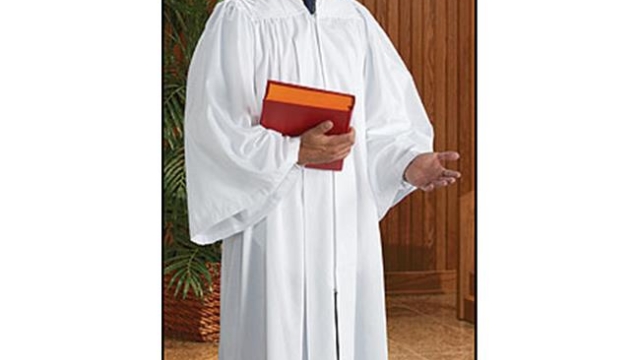
Welcome to a world where tradition meets symbolism, where garments embody faith and reverence. Within the realm of religious ceremonies, baptism holds a special place as a symbol of spiritual purification and rebirth. It is in the moments leading up to this sacred rite that pastors don their baptism robes, a garment laden with significance and meaning that stretches back through the annals of time.
The pastor’s baptism robe not only serves as a practical garment for the immersion ceremony but also carries layers of symbolic weight. As the pastor adorns this special attire, it serves as a visual representation of their role as a shepherd guiding the flock through the waters of faith. The purity and simplicity of the robe reflect the humility and dedication required to lead others in their journey towards spiritual enlightenment.
History of Baptism Robes
Baptism robes for pastors have a rich history dating back centuries. The tradition of wearing special garments during baptism ceremonies can be traced to early Christian practices. These robes symbolize purity, renewal, and the spiritual transformation that occurs during baptism.
Pastor baptism robes are typically made from high-quality fabrics such as white linen or cotton. The color white symbolizes innocence, purity, and the washing away of sins. The simplicity of these robes reflects the humility and reverence with which pastors approach the sacred act of baptizing individuals into the Christian faith.
Over time, pastor baptismal robes have evolved in style and design, reflecting changes in fashion trends and religious customs. Despite these variations, the underlying symbolism of the robes remains consistent – to visually represent the sacredness of baptism and the spiritual authority of the pastor carrying out the ceremony.
Symbolism in Pastor Baptism Robes
Pastor baptism robes hold significant symbolism that reflects the sacredness of the baptismal ceremony. These robes are often crafted in pure white, symbolizing purity, innocence, and the cleansing of sins through baptism. The color white also signifies a new beginning and spiritual rebirth as the individual enters a life of faith and devotion.
In addition to the color symbolism, pastor baptism robes are designed with intricate details such as embroidered crosses or symbols of the Holy Spirit. These embellishments serve as reminders of the Christian faith and the power of divine grace that is bestowed upon the baptized individual. The careful craftsmanship of these robes conveys a sense of reverence and respect for the sacrament of baptism.
Youth Baptism Robes
Furthermore, the flowing silhouette of pastor baptism robes represents the spiritual journey of the individual being baptized. As the robe drapes elegantly over the wearer, it symbolizes the covering of Christ’s righteousness and the mantle of leadership and guidance that pastors uphold in their ministry. The fluidity of the robe’s design conveys a sense of movement and transformation, capturing the essence of spiritual growth and renewal.
Modern Usage and Variations
In contemporary times, the use of baptism robes by pastors has evolved to reflect a more diverse and inclusive approach. Pastors now have the freedom to choose from a wide array of styles, colors, and fabrics for their baptismal attire. Some opt for traditional white robes, symbolizing purity and a fresh start in the Christian faith. Others may choose colored robes to add a personal touch or to align with the theme of the baptism ceremony.
The modern variations of pastor baptism robes also extend to the design details. Many robes now feature intricate embroidery or special embellishments that hold significance to the pastor or the congregation. These personalized touches not only enhance the visual appeal of the robe but also serve as a reminder of the sacred nature of the baptismal ceremony.
Furthermore, contemporary trends have seen pastors experimenting with different lengths and cuts of baptism robes. While some prefer floor-length robes for a traditional look, others may opt for shorter styles for added mobility and comfort during the baptismal ceremony. These variations in length and cut allow pastors to express their individuality while still honoring the solemnity of the baptism ritual.
